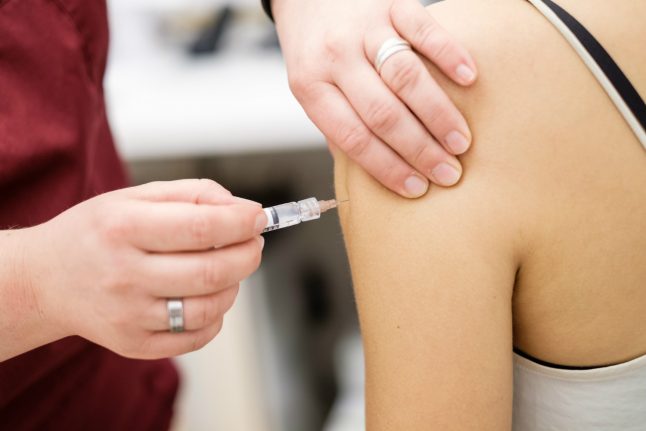The comments, made in an interview to the German media group Funke, come as scientists raced to develop a vaccine against the deadly coronavirus that has killed some 6,000 people, seen millions placed under lockdown and devastated global markets.
“German researchers play a leading role in drug and vaccine development and we cannot allow others to seek exclusive results,” Heiko Maas told Funke.
Citing sources close to the German government, Die Welt newspaper had previously reported that Trump had offered “a billion dollars” to secure research into a vaccine by German biotech firm CureVac “only for the United States”.
“Germany is not for sale,” economy minister Peter Altmaier told broadcaster ARD on Sunday, reacting to the report.
At a news conference, Interior Minister Horst Seehofer was asked to confirm the attempts to court the German company.
“I can only say that I have heard several times today from government officials today that this is the case, and we will be discussing it in the crisis committee tomorrow,” he said.
CureVac said in a statement Sunday that it “abstains from commenting on speculations and rejects allegations about offers for acquisition of the company or its technology”.
READ ALSO:
- US attempts to poach German scientists to develop exclusive coronavirus vaccine
- Coronavirus: These are the measures in Germany you need to know about
Fury
The report prompted fury in Berlin.
“International cooperation is important now, not national self-interest,” said Erwin Rueddel, a conservative lawmaker on the German parliament's health committee.
A US official told AFP Sunday that the report was “wildly overplayed”.
“The US government has spoken with many (more than 25) companies that claim they can help with a vaccine. Most of these companies already received seed funding from US investors.”
The official also denied that the US was seeking to keep any potential vaccine for itself.
“We will continue to talk to any company that claims to be able to help.
And any solution found would be shared with the world.”
READ ALSO: What's the latest on coronavirus in Germany and what do I need to know?
'Take action'
CureVac, founded in 2000, is based in the German state of Thuringia, and has other sites in Frankfurt and Boston.
The firm markets itself as specialising in “development of treatments against cancer, antibody-based therapies, treatment of rare illnesses and prophylactic vaccines”.
The lab is currently working in tandem with the Paul-Ehrlich Institute, linked to the German health ministry.
Last week, the firm mysteriously announced that CEO Daniel Menichella had been replaced by Ingmar Hoerr, just weeks after Menichella met with Trump, his vice president Mike Pence and representatives of pharma companies in
Washington.
“We are very confident that we will be able to develop a potent vaccine candidate within a few months,” CureVac quoted Menichella as saying on its website shortly after the visit.
On Sunday, CureVac investors said that they would not sell the vaccine to a single state.
“If we are successful in developing an effective vaccine, then it should help and protect people across the world,” said Dietmar Hopp, head of principal investor dievini Hopp Biotech Holding, in a statement.
Economy minister Altmaier welcomed the statement, saying it was a “fantastic decision”.
He also pointed out that the government has the power to scrutinise foreign takeovers, saying that “where important infrastructure and national and European interests are concerned, we will take action if we have to.”



 Please whitelist us to continue reading.
Please whitelist us to continue reading.
Member comments